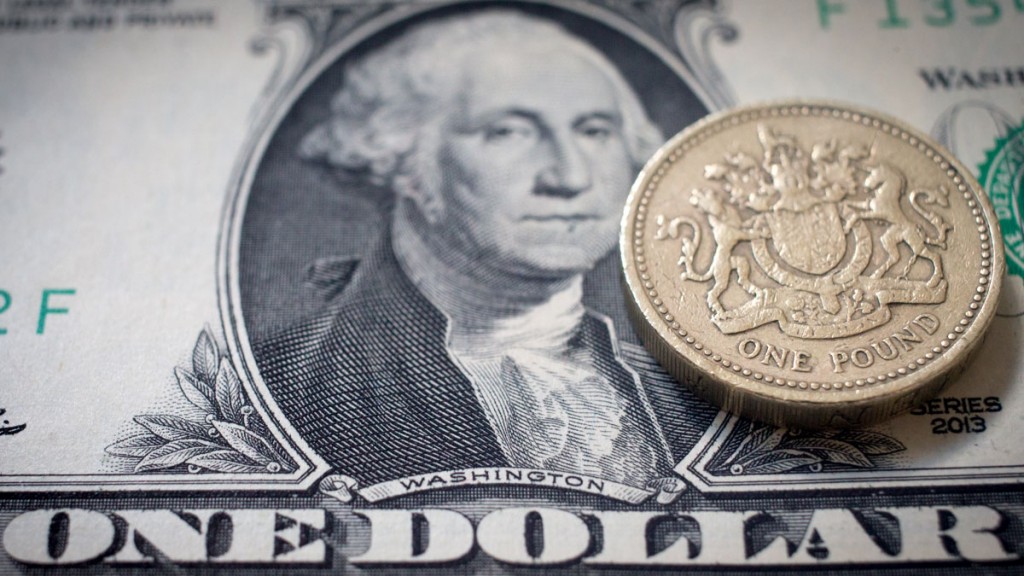
At the moment, one of the big debates is over whether a post-Brexit Britain should stay in the EU’s customs union, which would mean following Europe’s trade policy with third countries. Those who want Britain to forge its own agreements argue that countries around the world, including the US, are queuing up to cut trade deals with the UK.
To get an American perspective I talked to Dr Theodore Bromund, a senior fellow at The Heritage Foundation’s Margaret Thatcher Centre for Freedom. Bromund previously lectured at Yale University and has testified before the US Congress on Anglo-American relations.
Bromund is very optimistic about the chances of a US-UK deal, especially since the idea has a “high level of support” in the US. He notes that, “in surveys conducted by Pew, the UK almost always comes second – and only barely so – to Canada as the nation that Americans like and trust the most”. Bromund believes that, “if Britain had not been in the EU – and its predecessors – since 1973, the US and Britain would unquestionably have negotiated a free trade area already”. Overall, he firmly believes that such an agreement “is in both of our interests”.
Of course, since the US system gives the White House a large hand in US trade policy, a lot depends on the new president. Bromund accepts that Donald Trump has a “long history of opposition to Nafta, and a deep scepticism of China’s compliance with its WTO obligations”. However, it is “too soon to tell whether he will follow through on this”. Even if he imposes penalties on other countries, Britain shouldn’t worry since Trump has also said that the US “needs bilateral trade deals” and promised that after Britain leaves the EU, it would be “at the front of the line” for a trade deal.
However, while some sort of deal is very likely, Bromund admits that the exact terms will be up for debate. He thinks that the idea of the UK joining a regional agreement like Nafta (the free trade area involving the US, Canada and Mexico) “is not a good one, and we need to discourage it”. This is because, “Nafta is now a rather old treaty, and even a simple US-UK free trade area would be drafted rather differently”. What’s more it would need the approval of Canada and Mexico, and could face substantial opposition in Congress. Overall, that option is “politically not a starter”.
Instead of trying to go down the Nafta route, Bromund thinks that British negotiators should first focus on the relatively easy task of eliminating existing tariffs on both sides. After for this they should next turn to non-tariff barriers. Bromund accepts that trying to get Britain and the US to adopt the same internal regulations is going to be extremely difficult, with any gains “unlikely to be worth the political controversy the effort will cause”. As a result, he recommends that “in areas where we both have high standards”, Britain and the US should “recognise the other’s standards as legally equivalent”.
One example is drugs, where “both the US and the UK have strong testing regimes”. As a result, “we should simply agree that drugs legal for sale in the UK are legal for sale in the US, provided the reverse is true”. Of course, for this to work the UK would need to accept that British firms could face liability in the US for any unwanted side-effects, while the US would need to accept that the NHS would not necessarily buy every drug available. Cars and computer equipment are two other areas that could benefit from mutual recognition.
However, while it may be possible to expand the number of sectors later, Bormund believes that any initial trade treaty should be simple since “the more complex the deal, the higher the level of resistance”. Another sticking point that could become a major issue is if the US insists on an investor/state dispute settlement (ISDS) mechanism (special courts designed to protect US investors in Britain from discriminatory treatment and vice versa). While Bromund personally supports them, he acknowledges that ISDSs are “extremely controversial” in Britain, and so the US “should simply accept that the UK is a very free, open, and law-abiding nation, and is not going to cheat on its agreements”.